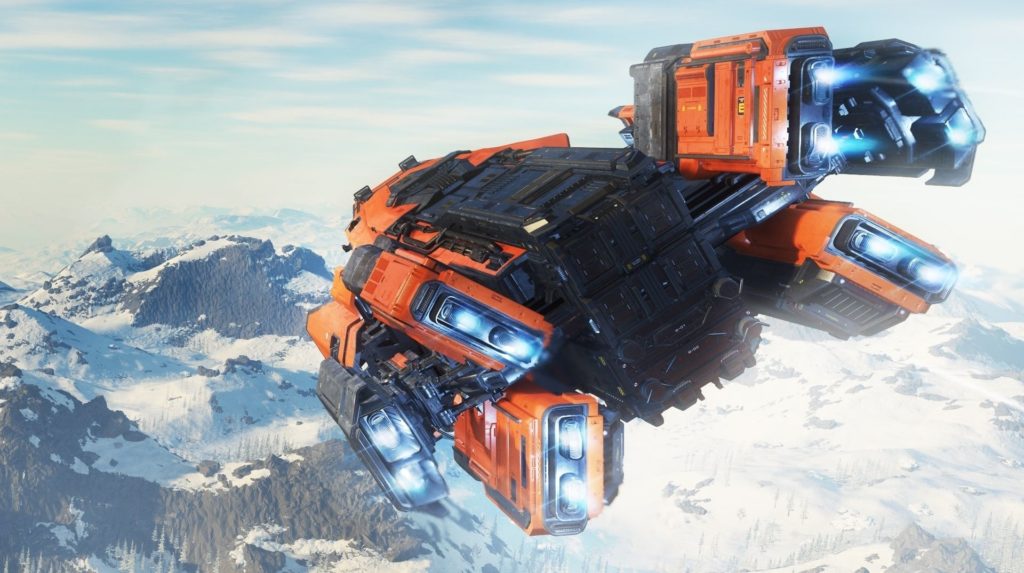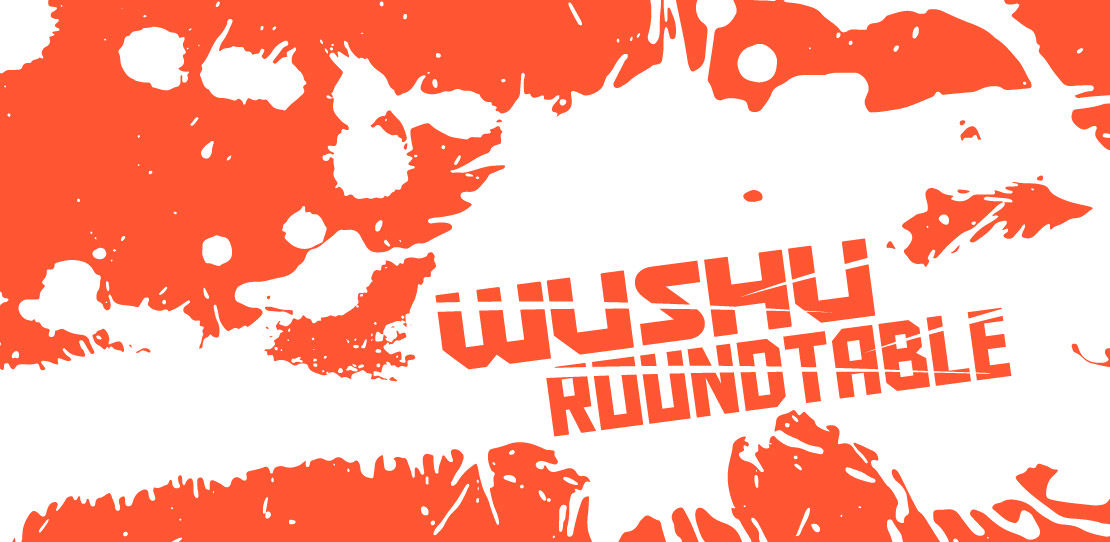Wushu Roundtable with Technical Designer Ian Farnan
Hello again!
Every now and again we like to sit down with the Wushu team and talk shop. From art to design and personal stories into the games industry, there’s a lot to tell from our team members and even more to learn. In this week’s Wushu Roundtable, we sat down with Technical Designer Ian Farnan, a veteran from games like Star Citizen, to talk about what exactly a “technical designer” is to advice in getting started in game design.
We hope you enjoy!
Hey Ian, thanks for carving out some time for a chat.
Hey! It’s a pleasure as always!
How have you been over this past year? What have you been doing to pass the time in this post-COVID world?
Given the current world pandemic, I’ve not been doing too bad! I’ve been trying my best to keep busy by playing games I missed out on (thanks for the Bioshock recommendation by the way!) and learning new skills. I’ve fallen down a deep rabbit hole of building my own mechanical keyboard, just waiting for more parts to arrive and then I can hopefully show some pics when it’s done!
Glad to hear that. So, you’re a technical designer at Wushu Studios. What does that mean exactly?
Yeah! So a technical designer is a sort of middle ground between a designer and programmer. We are designers primarily, but we have enough technical know-how to prototype and implement gameplay systems or scripts. We are here to solve design and technical problems in tandem, understanding the concerns a dedicated designer or programmer may have when it comes to the implementation of a system or gameplay element. We also ease the burden on programmers who may want to work on a task which is a higher priority for them.
Starting out, how did you go about acquiring the skills to pursue a role like that?
I don’t remember any defining “starting point” really. I’ve tinkered in game development since a very young age, but I suppose my real starting point was the beginning of my college and university studies. These really steered me into becoming a 3D Artist, and I kind of just “went with it”. I wasn’t really having a good time doing 3d art, but I was worried the time would be wasted if I didn’t build a career out of it. Eventually, I just had to reconsider my options to find what I wanted to do so I could enjoy my work.
This was a pretty difficult time for me, I wanted to make my own games, but lacked the skills to develop the gameplay and mechanics to do so, which is when I started to learn how to code. I spent many late nights on Code Academy and slowly gained an understanding of programming. When I had the fundamentals down, I started doing simple projects in Unity, mostly following their learning resources. After this, I bought a book about making games with a C++ framework called SDL2. Eventually, I moved over to UE4 and here I am today. It’s been a difficult journey, but I think most things that are rewarding and worthwhile are always going to be difficult, I’m excited for what else is to come!
Did you always know you wanted to go into technical design?
After learning how to code and realised being a Technical Designer was a very real possibility for me, I knew it’s what I wanted to do. Some of my industry heroes are programmers turned designers, so are proficient in both disciplines, their influence on me, helped lead me on this path. I’ve always wanted to be a designer who wasn’t limited by their technical proficiency, so I feel I’ve naturally come to this skill set based on my interests and goals.

Before joining Wushu, you were most recently working on Star Citizen at Cloud Imperium Games. In a general sense, how did that experience help prepare you for your next step in game development?
Oh man, I learned a ton during my time there! Working at Cloud Imperium Games on Star Citizen was my first experience as a developer on a huge project. It helped me understand how these games with a large amount of staff really come together, especially on a project as hugely ambitious as Star Citizen. If you aren’t careful, it’s very easy to block other developers in the pipeline, I gained a lot of skills that helped consider other peoples work as well as mine before making any decisions.
My time there gave me an understanding of the designer-programmer relationship, and how I, as a technical designer, can really help form a support bridge between both disciplines. I think often when a problem arises during a game’s development, it can usually boil down to miscommunication or a misunderstanding between 2 people of different disciplines. I started to notice when a designer and programmer are not necessarily on the same page and how to resolve this before it’s too late.
It also started training my foresight in how solutions or tools developed for one part of a game, may have shortcomings if applied to another, similar part of a game. Being able to plan and consider solutions in advance can have huge time savings in the grand scheme of production.
Like every industry, game development is a field whereby you’re constantly learning new things every day. Do you also partake in side projects as well?
Oh yeah, I feel like the ceiling is infinite! I’m usually working on some side project over the weekend, but it’s usually a small project I can complete in a week or two and have some kind of positive learning outcome by the end. Right now, I’m just spending my time making a simple FPS multiplayer game in Unreal, but I’m purposefully limiting my usage of Unreal Blueprints whilst developing this, to better my understanding of how the C++ implementation and Blueprint implementation work together.
My problem is I never finish the last 10% of a project to share it, I am usually satisfied when I’ve achieved what I set out to learn and will move on pretty quickly. I need to stop doing that and finish and share my stuff!
What sort of advice would you give to someone just beginning to explore game development as a career option?
I would say go for it! To me it honestly felt like an impossibility just half a decade ago, but here I am. Consider the roles, but don’t think any role is impossible with your current skill set. There are countless resources freely available online that can help you achieve the skillset you need.
This may seem obvious, but take a look at a careers page for studios that are near you or studios that make games you love, check their open positions and read them through to see if it sounds like something you would be interested in. If it is, great! see what skills they are looking for and start building yourself towards attaining those skills. Be sure to not over work yourself either, you will probably hit a brick wall and find yourself stuck, but it’s a normal part of the journey. Just take a break and get back to it when you feel refreshed, you don’t want to feel burned out before you really start being able to make your own games!
As we always like to end our roundtables, let’s do something fun: Are there any games that left a lasting impression on you whether as a fan or professional designer?
When I was a kid, a friend introduced me to Final Fantasy 7, oh man, I didn’t realise what a ride I was in for. I think back then, games were a lot shorter and you were expected to replay them to get your value out of them. I thought I was nearing the end when I was doing the Midgar motorcycle chase, only to have my expectations completely blown away with another 50 or so hours of gameplay left. That game set me up for a lifetime of RPG fandom, I’m still talking the Final Fantasy series through with friends to this day and can’t wait for the next one!
When I was a teenager, “Splinter Cell: Pandora Tomorrow” and its sequel “Chaos Theory” were some of the most memorable multiplayer experiences I’ve ever had. I still hold detailed memories playing those games with friends. It’s a really unique multiplayer experience in that the two sides competing are mechanically very different from one another, something I don’t think we see enough of in the competitive gaming space. It’s always stuck with me and I always have hope for a new entry in the series.
More recently, The Legend of Zelda: Breath of the Wild had completely surpassed my expectations as a designer. It’s the only game world I can aimlessly explore without feeling bored, never did I think that feeling would come from a game in the Zelda franchise. The moment you finish the starting zone “Great Plateau” and you get a quest objective “Defeat Ganon”, it gave me a huge smile as I realised, I’ve got the freedom to explore freely in my own time, under no pressure. That game is special in that you can wander in any direction and you will find something interesting. Especially when I came across Eventide Island, what an experience that is! For me, Nintendo “did it again” with Zelda and created another instant classic, I can’t wait to see what they have in store for us next.
Thanks for joining us today Ian!
Thanks for having me, take it easy!
Thanks for checking out this segment of Wushu Roundtable. Be sure to keep an eye on our Twitter, Instagram and Facebook pages for more upcoming fun initiatives from us. Until next time!
Nate Najda
Communications Manager

